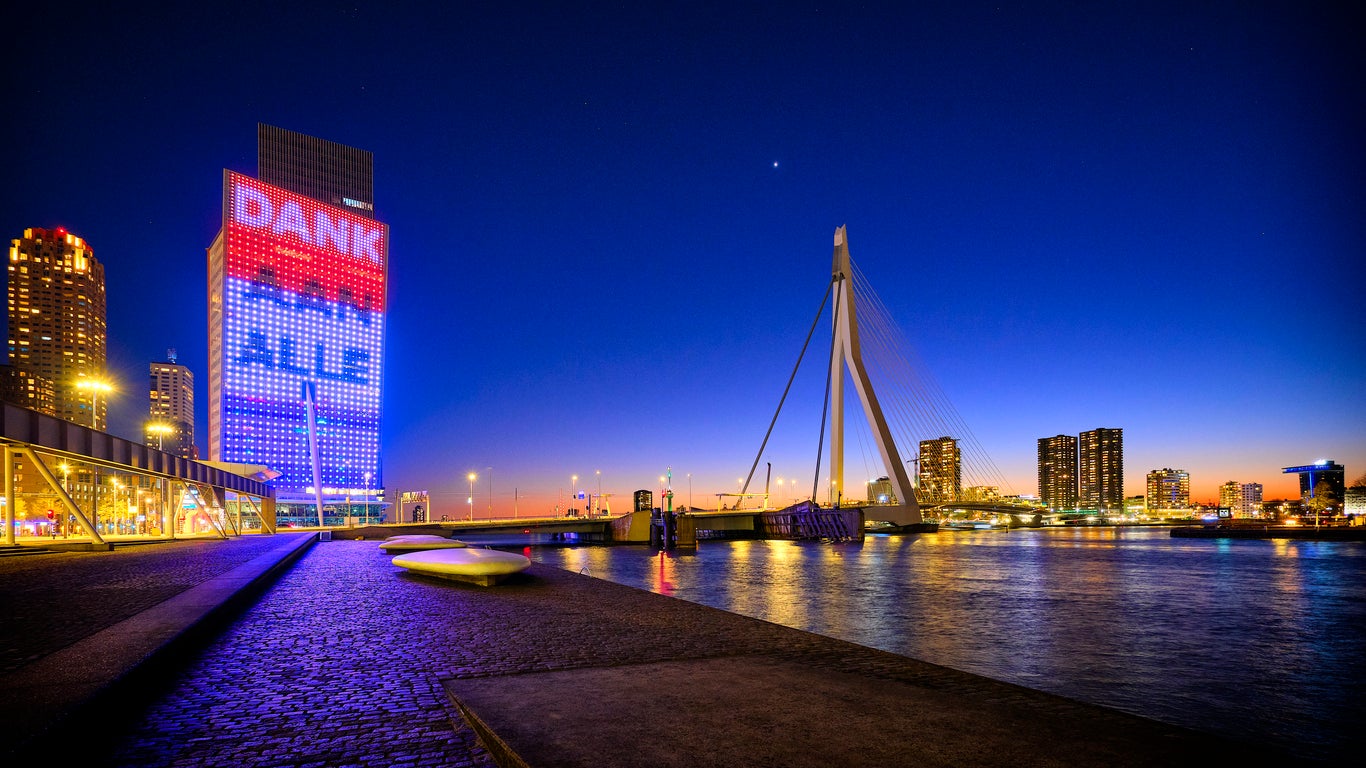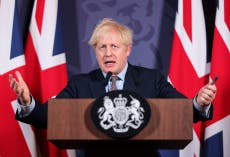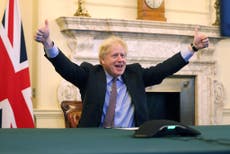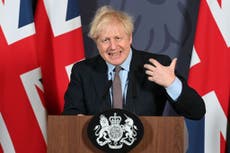Our cultural retreat from Europe is of equal concern to the economic threats posed by leaving the EU
Please send your letters to letters@independent.co.uk

Your support helps us to tell the story
From reproductive rights to climate change to Big Tech, The Independent is on the ground when the story is developing. Whether it's investigating the financials of Elon Musk's pro-Trump PAC or producing our latest documentary, 'The A Word', which shines a light on the American women fighting for reproductive rights, we know how important it is to parse out the facts from the messaging.
At such a critical moment in US history, we need reporters on the ground. Your donation allows us to keep sending journalists to speak to both sides of the story.
The Independent is trusted by Americans across the entire political spectrum. And unlike many other quality news outlets, we choose not to lock Americans out of our reporting and analysis with paywalls. We believe quality journalism should be available to everyone, paid for by those who can afford it.
Your support makes all the difference.Will Britain really gain from pulling out of the Erasmus scheme and substituting it for low budget Commonwealth-type education programmes, even if the distinguished “Turing” title is attached to its name?
Denying the opportunity to support thousands of our youngest and brightest EU and UK citizens exchange access to some of the world’s oldest and most distinguished centres of learning cannot be fully compensated by more distant and expensive options, including US Ivy League colleges, where only the rare allocation of scholarships make it remotely affordable for British students to attend.
We have all learned about the economic threats posed by leaving the EU but perhaps of equal concern should be any cultural retreat from Europe, as happened in the 16th century, something Erasmus, the Dutch philosopher the programme is name after, worked strenuously to avoid.
Paul Dolan
Northwich
Erasmus was one of the greatest scholars of the late 15th century, whose moral philosophy and teachings reflected and influenced the religious reformations emerging at that time. Alan Turing was without doubt one of the most brilliant mathematicians of the 20th century. After the war, his life was tragically cut short by prevailing attitudes and laws relating to homosexuality. The government of the day showed him no tolerance in the light of his outstanding wartime achievements and contributions to the war effort.
All of that said, I think our bumbling, boastful prime minister, in withdrawing from the hugely successful and renowned educational programme named in honour of Erasmus to begin his own underfunded programme named after Turing, is again motivated by his own cod-Churchillian self-identity, as Turing was the British inventor “wot won us the war”.
Peter Smith-Cullen
Dunston, Norfolk
Europe goes beyond the EU
Beryl Wall is wrong to suggest that “Brexiteers” (all of us) are not “culturally and emotionally” attached to Europe (EU attachment, Letters, 26 December).
No doubt some are not but I certainly am. What is more, I define Europe as more than the members of the EU. My attachment extends to Norway, Iceland, Switzerland, Macedonia, Montenegro, Liechtenstein – even Albania and Russia.
I voted in 1975 to remain in the European Economic Community as it then was. Successive UK governments acquiesced in its transitions to the “European Community” and the “European Union”, without any popular mandate. In 1975, we were assured, among other things, that by remaining in the EEC we were not committed to any form of political integration, and that UK law would not be overridden. The EU has steadily attempted to gain acceptance of the idea of “Europe” as meaning only itself – even when it contained many fewer states than it now does – and as being on an inevitable path to ever deeper political union. That is what Brexiteers like me voted against in 2016.
I refuse to identify Europe with the EU. I am proud to be European, and of the achievements of Europeans throughout the ages. There have been dark periods in European history, but overall Europe has been a beacon of progress and humanity.
Michael Clarke
Portishead, North Somerset
The ghost of Brexit Yet To Come
The Brexit deal was finalised on Christmas Eve with the president of the European Commission, Ursula von der Leyen, making a most gracious speech, in which she quoted The Beatles (“Long and winding road”), Shakespeare’s Romeo and Juliet (“Parting is such sweet sorrow”), and TS Eliot’s “Little Gidding” (“What we call the beginning is often the end, and to make an end is to make a beginning”).
In the run-up to Christmas, we all saw the huge line of trucks, lorries, articulated vehicles and whatever else on all roads leading to Dover. It was a scene right out of A Christmas Carol – with the Ghost of Christmas Yet To Come warning Boris Johnson’s negotiators that if there was a “no deal”, this is just how calamitous and chaotic things would turn out for everyone in the UK and Europe.
There’s no doubt in my mind that British negotiators made the comparison with Dickens’s greatest novel, which took place on Christmas Eve in 1843.
Bernie Smith
Canada
The arrival of a “deal” with the EU on Christmas Eve was a great relief to those of us who feared that the government might be seriously contemplating crashing out of the EU with “no deal”.
Nevertheless, what we have is another act of deceit by the prime minister. To brandish a 1500-page document on the eve of the longest public holiday of the year and to require its details to be scrutinised and agreed two days before the deadline is another calculated way of ensuring that our leader avoids proper scrutiny and accountability.
As ever, Johnson is too cowardly to confront issues openly and honestly; his instincts tell him to avoid conflict by appearing to promise anything to everyone, while leaving it to the little people in business, finance, logistics, intelligence and security to sort the details as they try to manage what they have been given. No time to plan strategically ahead since, as we know, this is not something the prime minister has ever had to do.
We deserve better than this but have become used to settling for the least worst option with this government.
Graham Powell
Cirencester
Rightfully returned
I am dismayed by the negativity in a number of the letters published (Letters, 26 December) regarding the Brexit agreement with the EU. It is obvious that years of pro-EU brainwashing by the establishment has had some success.
Yes, we have had to concede a certain amount to get what we now have but surely we value the right to determine our own laws, free of interferences from an EU, which now has no say in these matters and, frankly, when it came to it, always put the position of France and Germany ahead of ours.
We elect our parliament to make our laws and nobody except the voting British public has the ultimate right to determine this. This right has just been returned to us, having been given away by Wilson, Heath, Major and Blair.
Perhaps the diehard Remain lobby would do well to reflect upon this instead of continuing to whinge four and a half years after the democratic vote, which set us on the path of recovering what is rightfully ours.
Dr Arthur Smith
Warrington
Steep decline
Boris Johnson has said that, now he has secured the post-Brexit trade deal, he will be able to focus on “levelling up” the country.
His record of competence in other spheres has been impressive, but not in a good way. We must therefore brace ourselves in readiness for our social slopes to become even more steep.
Susan Alexander
South Gloucestershire



Join our commenting forum
Join thought-provoking conversations, follow other Independent readers and see their replies
Comments